Enterprises exporting to Europe face pressure to go green
On December 13, the EU announced it would implement the Carbon Border Adjustment Mechanism (CBAM), which imposes a carbon tax on exports based on the intensity of greenhouse gas emissions in the production process.
The CBAM will be applied to electrical products, steel, fertiliser, aluminium, and cement in the pilot period of 2023-2025, all imported goods with high pollution risk. According to experts, implementing CBAM could create obstacles for Vietnamese goods to take advantage of the EU-Vietnam Free Trade Agreement (EVFTA), making it difficult to export to this market.
In 2022, Vietnam's export turnover to the EU is expected to reach about $50 billion. The EU is one of the four largest export markets for Vietnamese goods.
In 2025, the European Commission will assess CBAM’s performance. It could expand its scope to include more products and services, including “indirect emissions,” which refers to carbon emissions from using electricity to produce goods, if it is officially applied in 2026.
Accordingly, CBAM will likely take effect officially for goods imported from Vietnam since January 2026. Thus, Vietnamese enterprises exporting steel, cement, iron, and fertilisers to the EU will have three years to prepare. If enterprises do not promptly reduce carbon emissions now, they will face the risk of being imposed tax, making exported goods more expensive and affecting their competitiveness.
The Viet Nam National Cement Association expressed its concern that the export of cement to the US and EU markets will suffer due to the imposition of carbon emission tax.
Duong Ngoc Truong, deputy head of the Environmental Safety Department under Vietnam Cement Industry Corporation, said: “CBAM will create high additional costs for Vietnamese exports. Many cement enterprises face difficulties IN transferring technology, in terms of capital and policies to reduce greenhouse gas emissions.”
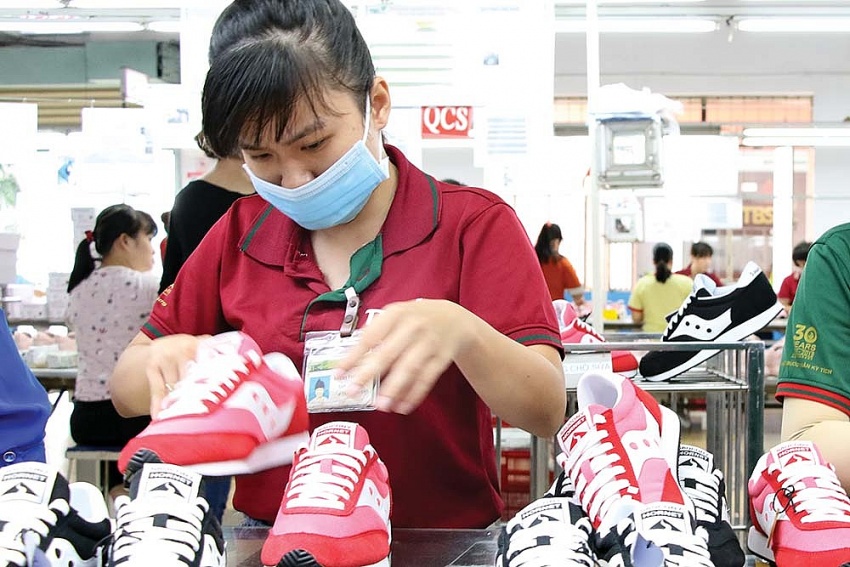 |
Reducing greenhouse gas emissions is considered an inevitable trend. Many large markets, such as the United States, Japan, and South Korea, have also built similar mechanisms. Therefore, it is necessary for Vietnam’s enterprises to transform production towards going greener and protecting the environment by reducing emissions in the production process.
The Vietnam Trade Office in Sweden said that to respond well to this new EU regulation, manufacturing enterprises in high-risk industries, such as steel, aluminium, oil refining, cement, paper, glass, fertiliser, and energy, should have plans to reduce the carbon footprint of the manufacturing process, to not exceed the EU standard threshold.
At some point, all goods exported to the EU could be required to meet green standards. Currently, enterprises in two sectors that export about $8 billion to the EU each year, leather footwear and textiles, need to convert to green production to meet the EU's requirements.
According to Vietnam National Textile and Garment Group (Vinatex), green production will push costs up, affecting profit. But given the medium-term benefits, Vinatex has to invest in the green and circular economy.
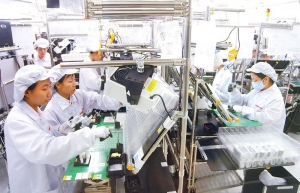 | Foreign-invested enterprises face up to procedural barriers Administrative procedures such as a prolonged timeline for obtaining business licences, as well as overlaps in the legal framework, are continuing to affect the expansion plans of many foreign-invested enterprises in Vietnam. |
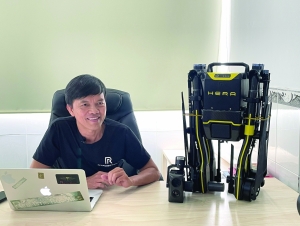 | Luong Viet Quoc: The first Vietnamese exporting drones to US market Drones are among tech-intensive items many countries have been paying a great deal of attention to and are often associated with tech giants like the US and China, but one Vietnamese, Dr. Luong Viet Quoc, founder and CEO of Real Time Robotics Inc. not only manufactures but also sells his drones to foreign customers. |
 | Policy tools promote application of green chemistry in enterprises Along with the initiative of enterprises in response to market requirements and international economic integration, policy tools are important in promoting the application of green chemistry, according to Nguyen Van Thanh, director general of Vietnam Chemicals Agency. |
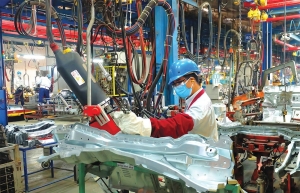 | Production indices face right direction for 2022 aims Despite numerous lingering difficulties, Vietnam’s industrial production has continued its uptrend, creating more employment for the economy. |
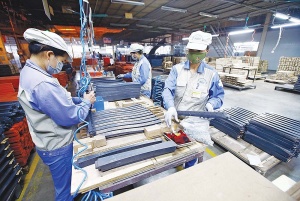 | Textile enterprises face difficulties in 2023 The economic downturn and high inflation in many major export markets exerts difficulties on Vietnam’s textile exporters for 2023. |
What the stars mean:
★ Poor ★ ★ Promising ★★★ Good ★★★★ Very good ★★★★★ Exceptional
Related Contents
Latest News
More News
- Trung Nam-Sideros River consortium wins bid for LNG venture (January 30, 2026 | 11:16)
- Vietnam moves towards market-based fuel management with E10 rollout (January 30, 2026 | 11:10)
- Envision Energy, REE Group partner on 128MW wind projects (January 30, 2026 | 10:58)
- Vingroup consults on carbon credits for electric vehicle charging network (January 28, 2026 | 11:04)
- Bac Ai Pumped Storage Hydropower Plant to enter peak construction phase (January 27, 2026 | 08:00)
- ASEAN could scale up sustainable aviation fuel by 2050 (January 24, 2026 | 10:19)
- 64,000 hectares of sea allocated for offshore wind surveys (January 22, 2026 | 20:23)
- EVN secures financing for Quang Trach II LNG power plant (January 17, 2026 | 15:55)
- PC1 teams up with DENZAI on regional wind projects (January 16, 2026 | 21:18)
- Innovation and ESG practices drive green transition in the digital era (January 16, 2026 | 16:51)

 Tag:
Tag:




















 Mobile Version
Mobile Version